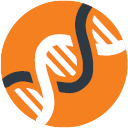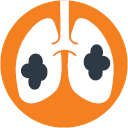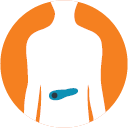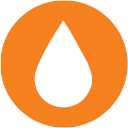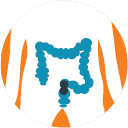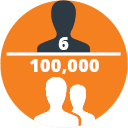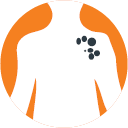In 2024 we're investing in 8 of the brightest and best cancer researchers from across Australia.
Please see the list of all early career cancer researchers that are currently funded by the CanToo Foundation here.

Dr Joshua Tobin
Mater Research Institute, University of Queensland
The role of lipids in the immune fitness of malignant B cells, intratumoral T cells, and CAR-T cells in follicular lymphoma
Although many patients with follicular lymphoma are responsive to chemotherapy, the inability of the anti-tumour immune response to remove cancer cells can lead to treatment resistance. It remains unclear what drives this inadequate anti-tumour immune response.
The altered metabolism of fuel sources, such as sugars and fats, are common features of cancer. In this project, Dr Tobin will explore the by-products of altered metabolism, how they impair the immune response and their role in early treatment failure in people with follicular lymphoma.
For more information on Dr Tobin’s project click here.
Dr Tobin is funded by the Can Too Foundation in partnership with Cancer Australia through the Priority-driven Collaborative Cancer Research Scheme (Grant ID: 2021304).

Dr Holly Holliday
Children's Cancer Institute
Investigating histone citrullination as a novel epigentic driver in diffuse midline glioma
Diffuse Midline Glioma (DMG) is one of the most devastating brain cancers affecting children. It is incurable, and sees young school-aged children progress steadily to their deaths despite all efforts to slow the disease. The need for effective treatments cannot be overstated.
The main driver mutation in DMG causes a defective histone protein to be produced, which triggers massive disruption to gene activity, ultimately causing cells to become cancerous.
Dr Holliday will explore an understudied histone modification – called ‘citrullination’ – to determine if targeting of this particular histone modification can prevent activation of the genes that are driving tumour growth.
The goal of this project is to increase understanding of DMG biology, and ultimately develop novel treatment strategies for people with DMG.
For more information on Dr Holliday and her project watch this short presentation.
Dr Holliday’s project is kindly supported by The Michael and Joan Tallis Endowment.

Dr Vasilios Panagopoulos
South Australian Health and Medical Research Institute, University of Adelaide
Targeted inhibition of myeloperoxidase: a new therapeutic strategy to prevent multiple myeloma disease progression
Multiple myeloma is an incurable blood cancer that is strongly influenced by inflammatory cells that accumulate within the bone marrow of patients.
One of the major concerns myeloma patients face as they endure numerous lines of therapy is that the efficacy and duration of response decreases with each subsequent round of treatment. As a result, patients become refractory to all treatments and unfortunately succumb to their disease.
There is therefore a real need for the development of new, well-tolerated therapies that overcome treatment resistance and prevent patients from relapsing. This project focuses on developing a new treatment strategy to address this unmet clinical need.
Dr Panagopoulos and his team have previously shown that myeloperoxidase (MPO), released by inflammatory cells within the bone marrow of people with multiple myeloma, contributes to disease progression.
The goal of this project is to generate the crucial pre-clinical data required to support the translation of a new MPO inhibitor – into clinical trials – for treating people with multiple myeloma.
For more information on Dr Panagopoulos’s project click here.
Dr Panagopoulos is funded by the Can Too Foundation in partnership with Cancer Australia through the Priority-driven Collaborative Cancer Research Scheme (Grant ID: 2021451).

A/Prof David Gallego Ortega
University of Technology Sydney
Developing an immunotherapy for triple-negative breast cancer
Survival outcomes for people with triple-negative breast cancer are poor and new and effective therapies are urgently needed.
Specific cells, known as myeloid-derived suppressor cells (MDSCs), are active in triple-negative breast cancer. These cells reduce the body’s normal immune response to breast cancer, allowing the cancer to grow and spread.
In this project, A/Prof Gallego Ortega will develop biomarkers for MDSC to detect the early spread of triple-negative breast cancer cells to other parts of the body. He also aims to refine a treatment prototype that specifically targets MDSCs, which could pave the way for a new generation of immune therapies for triple-negative breast cancer.
A/Prof Gallego Ortega is funded by the Can Too Foundation in partnership with Cancer Council NSW through the Cancer Council NSW Project Grant Scheme (Grant ID: RG-23-09 [2023-2025]).

Dr Arutha Kulasinghe
Frazer Institute, University of Queensland
LUNG PREDICT
With the emerging success of immunotherapies in lung cancer patients, leading to durable and prolonged survival, there is now a need for predictive biomarkers to guide patient selection.
This project aims to use cutting-edge spatial genomics and advanced imaging approaches to characterise the tumour microenvironment of non-small cell lung cancer. This will ensure that those likely to benefit from immunotherapy receive optimal care and prevent exposure of toxic agents to those unlikely to respond.
For more information on Dr Kulasinghe’s project click here.
Dr Kulasinghe is funded by Can Too Foundation, in partnership with Cancer Australia, through the Priority-driven Collaborative Cancer Research Scheme (Grant ID: 2012084).

Dr Zeyad Nassar
University of Adelaide
Targeting fatty acid oxidation, a novel approach for prostate cancer treatment
Cancer cells are characterised by uncontrolled cell proliferation, the ability to migrate and invade into other tissue, and resistance to treatment. These cellular capabilities require the production of additional energy by the cell. Prostate cancer cells rely mainly on lipids as fuel to supply the increasing demands on energy. Targeting the machinery (enzymes) that the cells use to break down lipids into energy may be a new way to slow tumour growth and metastasis.
Dr Nassar is funded by Can Too Foundation, in partnership with Cancer Australia, through the Priority-driven Collaborative Cancer Research Scheme (Grant ID: 2011672).

Prof David Ziegler
Children's Cancer Institute, University of New South Wales
Testing a new dual treatment for aggressive childhood brain cancers
In Australia, brain cancer is the single disease responsible for the greatest number of deaths in childhood. Sadly, many children with brain cancer succumb to the disease within only a few years of diagnosis.
Prof Ziegler has shown that a specific molecular pathway is overactive in aggressive childhood brain cancer and is a promising target for treatment. In this project, Prof Ziegler will use samples from the most aggressive childhood brain tumours to determine whether a new drug combination can switch off the overactive molecular pathway and stop cancer progression. He will also assess the effectiveness of this drug combination alongside chemotherapy and other current treatments to see if their effectiveness is enhanced.
Prof Ziegler hopes this new combination treatment strategy will lead to a clinical trial for children with aggressive and otherwise incurable brain cancer.
For more information on Prof Ziegler’s project click here.
Prof Ziegler is funded by Can Too Foundation, in partnership with Cancer Council NSW, through the Cancer Council NSW Project Grant Scheme (Grant ID: RG-22-08 [2021-2025).

A/Prof Belamy Cheung
Children's Cancer Institute, University of New South Wales
Finding new treatments for aggressive childhood cancers
High-risk neuroblastoma and medulloblastoma are two of the most difficult childhood cancers to treat, and the effects of treatment can impact quality of life both in the short and long term.
A/Prof Cheung has identified high levels of the MYCN protein in aggressive childhood cancers. She has also shown that a particular gene, USP5, supports MYCN, helping to drive cancer development and growth. In this project, A/Prof Cheung will determine whether blocking MYCN and USP5 activity is an effective approach for treating these aggressive childhood cancers. Molecular compounds targeting MYCN and USP5 will be developed, and their effectiveness against cancer will be assessed in pre-clinical models, as a standalone treatment and in combination with standard chemotherapy and radiotherapy. If these pre-clinical tests are successful, A/Prof Cheung hopes to translate the findings into a clinical trial.
A/Prof Cheung is funded by Can Too Foundation, in partnership with Cancer Council NSW, through the Cancer Council NSW Project Grant Scheme (Grant ID: RG-21-08 [2021-2024]).
We Invest In Fighting All Cancers
Can Too Foundation believes in funding research across all cancer types, including rare cancers. We support early-career cancer research grants and major cancer research projects for one year at a time, with a commitment to continue providing support in future years for multi-year grants and projects.
Cancer Genetics & Biology
Cancer Prevention
Cancer Treatment
Children's Cancers
Gynaecological Cancers
Lung Cancer
Pancreatic Cancer
Prostate Cancer
Blood Cancers
Bowel Cancer
Brain Cancer
Breast Cancer
Rare Cancers
Skin Cancers
Current Beneficiary Partners

Children's Cancer Institute's vision is to save the lives of all children with cancer and improve their long-term health, through research. In 2021 Can Too is funding Children's Cancer Institute researcher – Dr Emmy Fleuren who was also a participant and ambassador for Can Too’s Autumn Swim program. She is dedicated to improving the cure rates for children with sarcoma using therapies that specifically target the tumour cells that are more effective and less likely to cause damaging side effects.
Can Too Foundation has also partnered with the Children's Cancer Institute, by training open water swimmers to take on the Balmoral Swim for Cancer since 2018. By training swimmers for these events Can Too has raised over $309,220 for cancer research and prevention.

Cancer Australia was established by the Australian Government in 2006 to benefit all Australians affected by cancer, and their families and carers. Cancer Australia aims to reduce the impact of cancer, address disparities and improve outcomes for people affected by cancer by leading and coordinating national, evidence-based interventions across the continuum of care.

Cancer Council NSW has collaborated with the Can Too Foundation since February 2014, with four rounds of one-year funding support for major cancer research projects including A/Prof Phoebe Phillips team leading a breathkthrough in pancreatic cancer. Together we are developing and delivering new fundraising programs in the health and fitness space that engage members of the community to take part in fitness events to encourage a healthy lifestyle while raising funds for cancer research. Our programs aim at encouraging people to take up or maintain exercise as part of a healthy lifestyle to reduce their chances of being diagnosed with cancer.

Can Too Foundation has partnered with Hudson Institute of Medical Research. Hudson Institute of Medical Research share Can Too's commitment to funding research for ALL cancer types and ALL areas of cancer research. Hudson Institute scientists are investigating how cancer develops, exploring ways to better diagnose, detect and treat life-threatening cases – and improve a patient’s quality of life.



